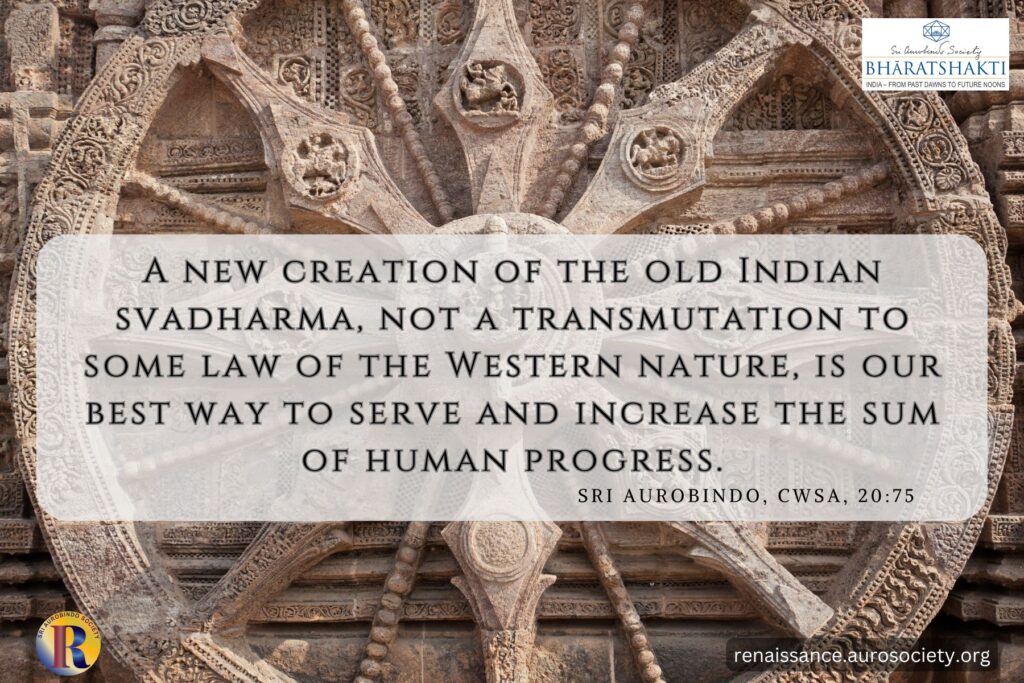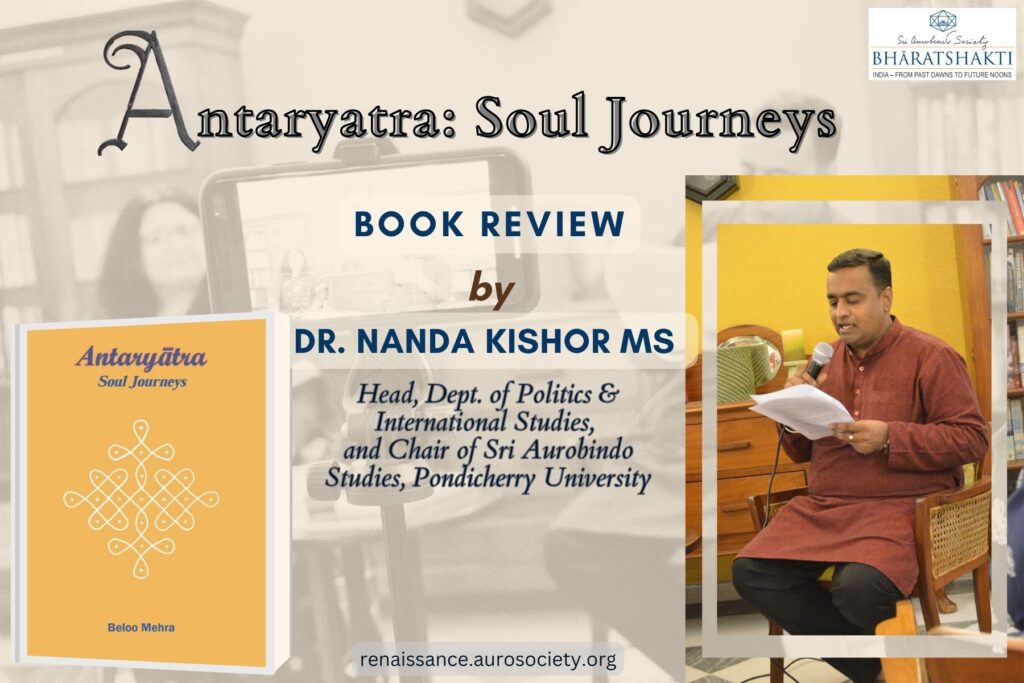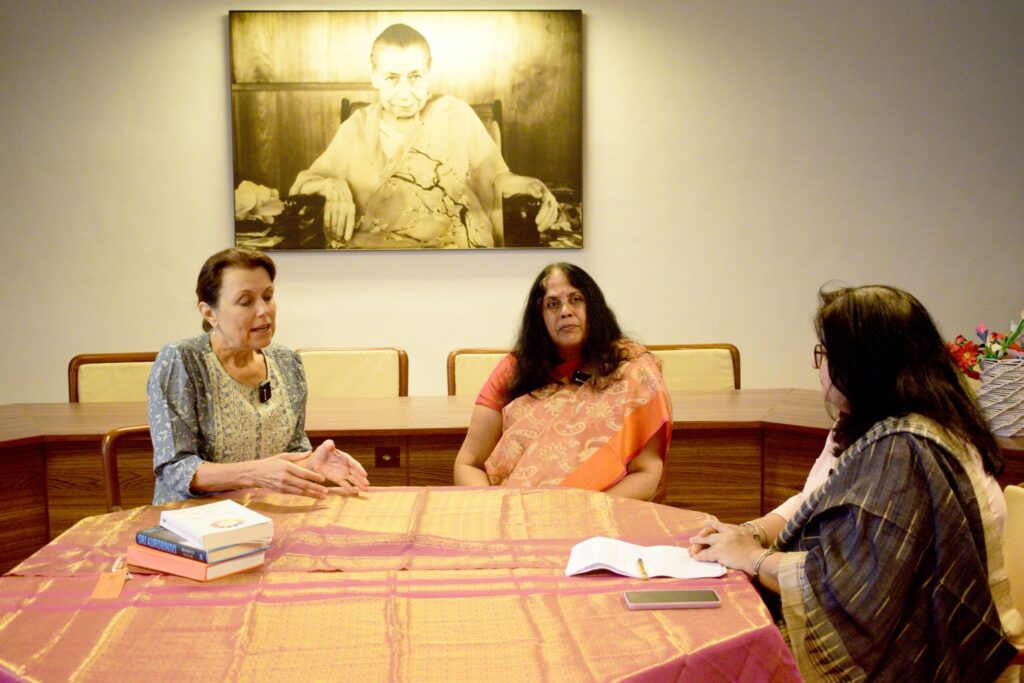Editor’s Note: The author explores the significance of Sri Aurobindo’s remarkable essay titled On Original Thinking for today’s new India. He suggests that a clear and infallible roadmap to realize the dream of India as a thinking nation is laid down by Sri Aurobindo in this essay.
In fact, in the personal view of this editor, this particular essay should be a mandatory reading in all colleges and universities across India.

There is a lot of commotion around the vision of new India. This new India is a confident, bold, vigorous, valorous, prosperous, self-reliant India with an immense image of a global leader. Such an aspiration and lofty ambition is not a wild goose chase. In the third decade of the 21st century, India is indeed progressing fast. It is scaling new heights in academia, business, politics, diplomacy, technology and international affairs.
India today majestically stands as the fifth largest economy of the world. World is recognizing India for her matchless human capital, technical prowess, monetary mettle and intellectual precision. But above all, she has a great and infallible spiritual legacy of Light.
Icing on the cake is her youth power, the treasure trove of spirit and agility, of exuberance and intellectuality. India is bound to scale heights and lights of progress by the puissance of her youth. A young nation is unstoppable; it is impossible to block the marching wheel of a young nation without repercussions.
But let us rewind the time machine.
Let us investigate life of India in the first decade of the 20th century. The grim picture we get is of a moribund slave nation with incomparable squalor, social and religious disintegration, political schism, economic fault lines.
India of 120 years back is a calendar picture of impoverishment, backwardness and suicidal superstitions. We also had a shearing complacency of the masses, political lethargy and religious dogmatism. Of course, there was a political party called Indian National Congress it was more a cozy club of aristocratic India, of the sahibs and Lords from Bengal and Bombay. The distinguishing feature of this club of mendicancy: servile prostration before the Raj and docile expression of Indians’ aspirations through ‘policies’ of prayer, protest and petition.
There was no vision of one and united India. There was no aspiration for a new and larger dawn. India was inwardly and outwardly shackled – more in inner chains of slumber and skulduggery, of selfishness and avarice than the outer fetters of slavery and persecution.
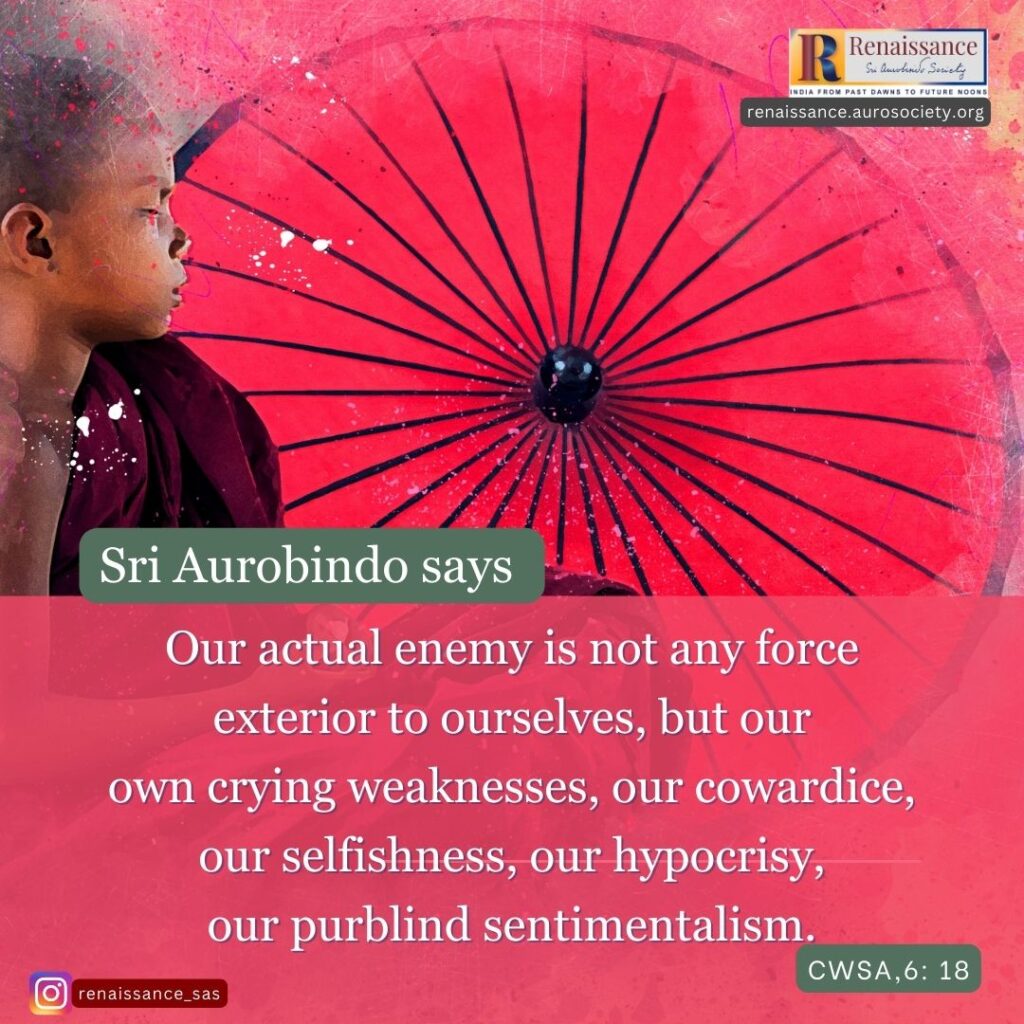
***
But there was one voice in India that was calling for the vision of new and free India, a voice giving lofty and resounding calls for building the inner swaraj and recovering the lost patrimony of forefathers. That voice was of Sri Aurobindo.
Others were political leaders with sights. Sri Aurobindo was a yogi in politics with a clear insight and drishti for future events.
What others were just dreaming, he was realizing; what others were conceptualizing, he was materializing. He knew that India was going to be free. Her hour had come and no power under the sun can withstand her.
India’s Awakening for the World
Sri Aurobindo knew that India have had a God-given responsibility for the world, that India is not just for herself but for the world. India was striving and fighting for the liberation for the world, India’s freedom was the good omen for the freedom of the whole world. India’s freedom was the death bell for the darkness and depression of the cosmos.
He was convinced that India is going to play a major role in scheme of things for the world. In India’s awakening lies the possibilities of the world’s awakening. This is the fundamental difference between Sri Aurobindo and the rest.
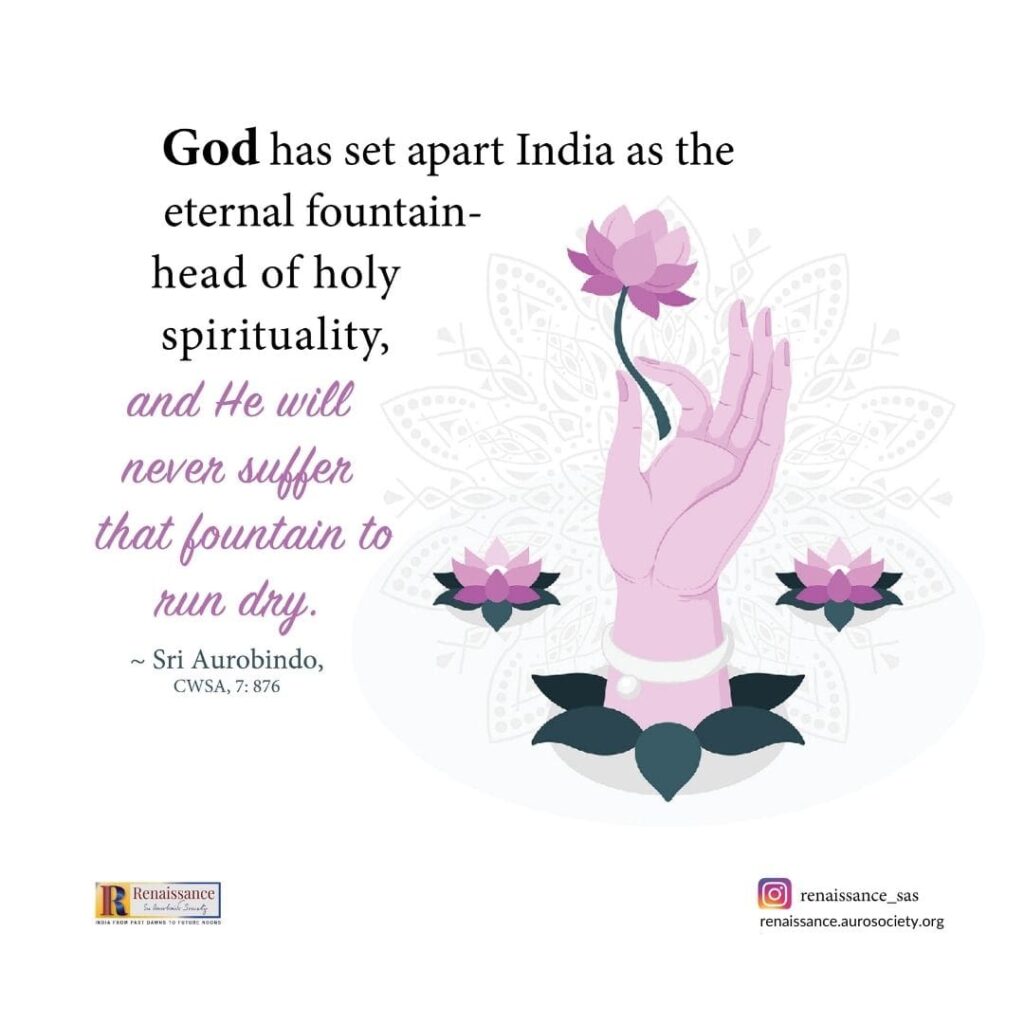
All his speeches and public talks, all his articles and editorials in the Bande Mataram, Dharma and Karmayogin are but reawakening of Bharat Shakti, the passionate and powerful appeal for recovering the inner swaraj, the source of outer swaraj.
Sri Aurobindo’s conceptual clarity amazes us. Even at the age of 21 and with very little experience of living in India, he knew who was the actual enemy of this nation, a favour not granted by God to many stalwarts of the then India’s politics –
Our actual enemy is not any force exterior to ourselves, but our own crying weaknesses, our cowardice, our selfishness, our hypocrisy, our purblind sentimentalism.
~ CWSA, Vol. 6, p. 18
Even in dark and intimidating days of dolour and depression, of anger and agony of dependence, Sri Aurobindo was singing of dawn and delight, of freedom and light. He was talking about those things which were supposed to create a new and insurmountable destiny for free India. He was talking about yoga, spirituality, industry, education, enterprises, and a national system of self reliance. And he was also pointing out the keys to achieve all these goals and milestones.
From our archives:
India and Her Mission – Free E-books on India
Live and Suffer for the Motherland
Sri Aurobindo was also fully aware of the nation wide tamas and inertia of Indians, the slumber of ages, the feints of fate on her soul, the fault lines of Indian society, the inner infirmities of our people that enslaved them and kept enslaved, divided and infirm for centuries. Therefore, he talked about “re-aryanisation” of India and “recovery” of the true Indianness through his essays and pamphlets such as Bhawani Mandir and the Ideal of Karmayogin.
No nation could be on the height without ensuring the strength of her depth, the base. Sri Aurobindo cemented the emotion of motherhood for Bharat among the youth who might have otherwise seen her only as a piece of earth. He exhorted and encouraged them to live and suffer for Bharat Mata. He shared with them his vision of new India and his dreams for India of tomorrow.
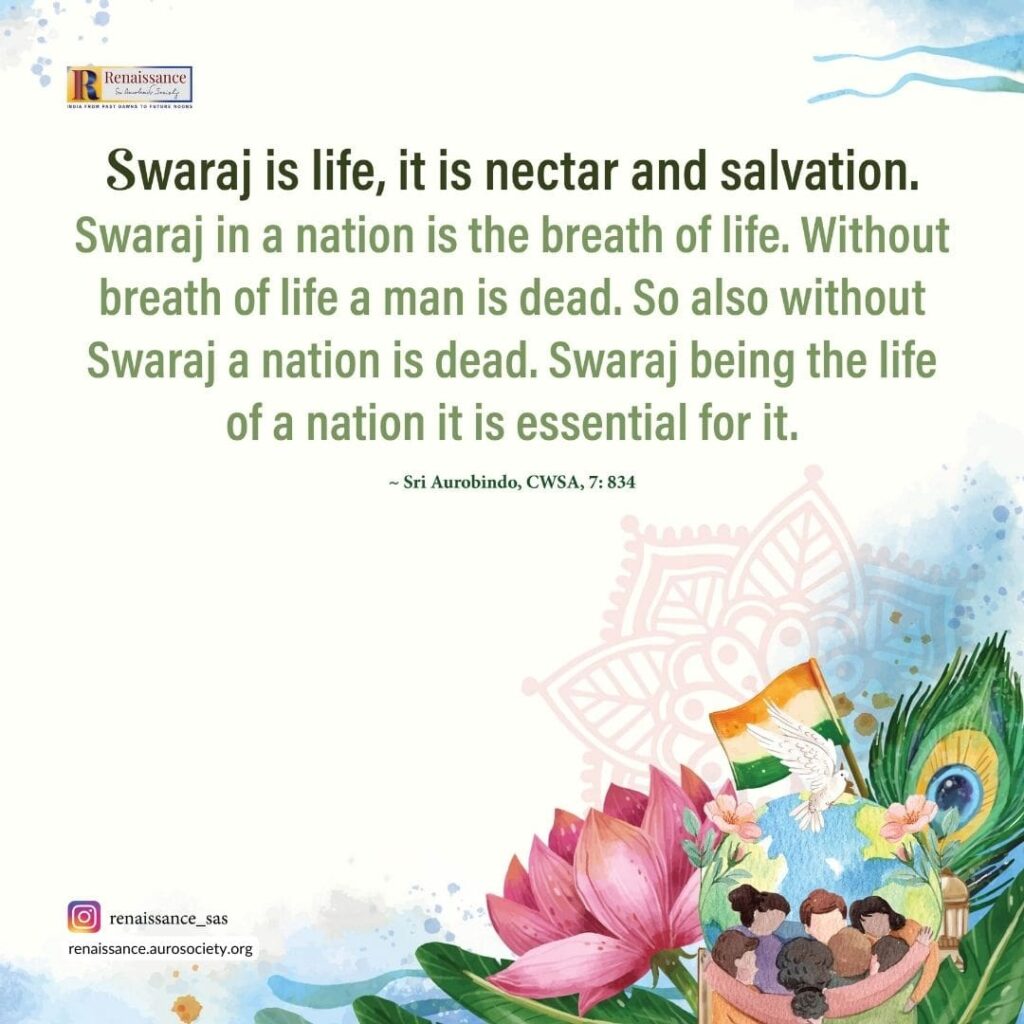
In August 1907, while addressing students of Bengal National College, of which he was one of the founders (now developed into Jadavpur university), Sri Aurobindo said that the college was his (and his colleagues’) dream of realizing a new India that will live and work for the whole world:
When we established this college, and left other occupations, other chances of life, to devote our lives to this institution, we did so because we hoped to see in it the foundation, the nucleus, of a nation, of the new India which is to begin its career after this night of sorrow and trouble, on that day of glory and greatness when India will work for the world.
~ CWSA, Vol. 7, p. 656
Thought-phobia
Unfortunately, years of national disintegration and foreign servitude rendered Indian decimated and degenerated, inefficient and infertile. The Asura of tamas, inertia, shackled her soul. India lost her most innate and powerful faculty of national life: the power of sublime thinking. The minds of Indians were easily overcome by foreign minds, the ‘mental space’ was quickly and violently captured by the marauders, looters, preachers, propagandists and colonizers.
India stuck to the authority of the tradition and an unprecedented “thought -phobia” gripped our national life.
We surrendered before the battle, we accepted defeat before the enemy outnumbered us. In one of his best letters written to his younger brother and rebel revolutionary Barindra Kumar Ghose, Sri Aurobindo throws light on the actual reason behind India’s downfall and decimation:
It is my belief that the main cause of India’s weakness is not subjection, nor poverty, nor a lack of spirituality or religion, but a diminution of the power of thought, the spread of ignorance in the birthplace of knowledge. Everywhere I see an inability or unwillingness to think—incapacity of thought or “thoughtphobia”.
This may have been all right in the mediaeval period, but now this attitude is the sign of a great decline. The mediaeval period was a night, the day of victory for the man of ignorance; in the modern world it is the time of victory for the man of knowledge.
He who can delve into and learn the truth about the world by thinking more, searching more, labouring more, gains more power.
~ CWSA, Vol. 9, Letters to Barin
***
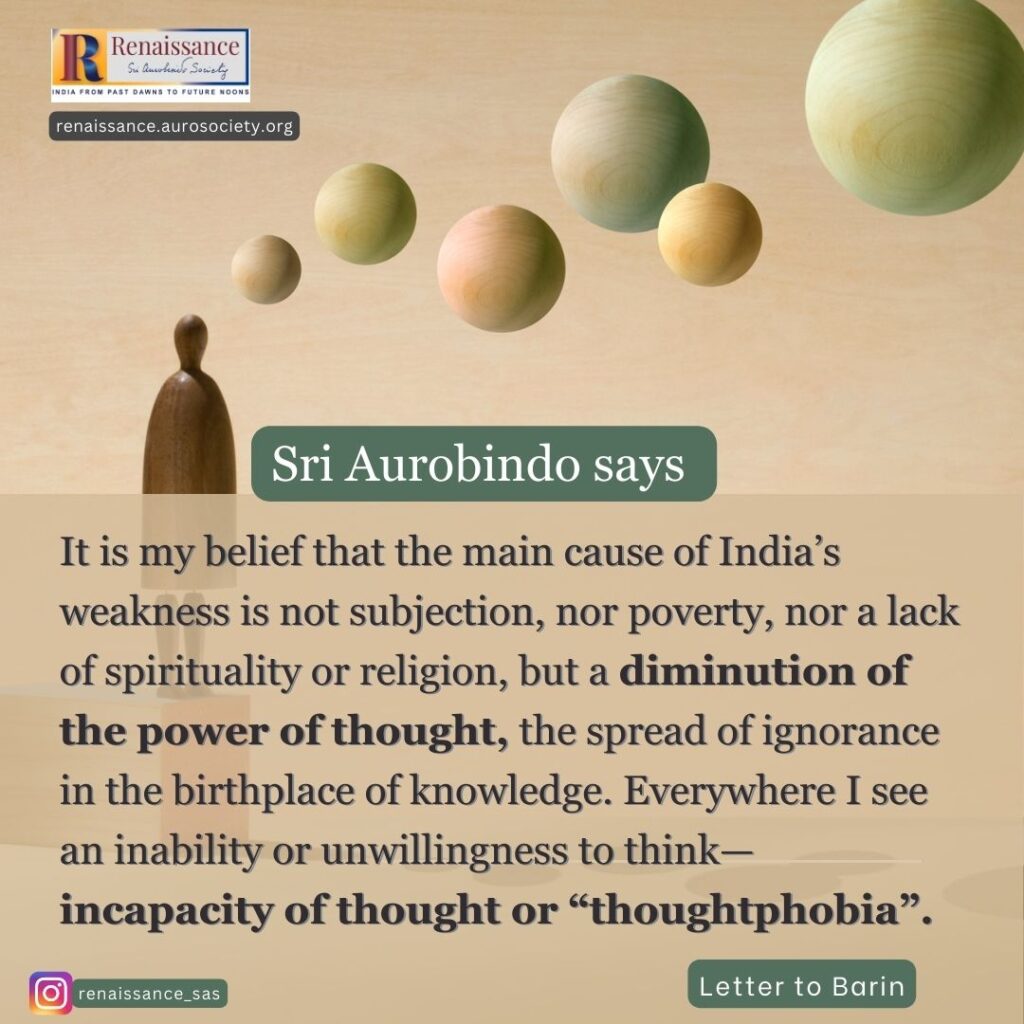
This author feels that even independent India has not fully overcome its weakness of “thought -phobia” as she continues to suffer the malaise of mediocrity in many sectors of social life. A robust culture of free thinking is yet to take place in our national life. Only some “solitary giants” are surely making headways here and there. The masses linger behind in the rusty and dusty corners of apathy and smugness.
Why is Thinking Important?
No nation can become great and prosperous by keeping its masses in darkness and backwardness.
When once a nation begins to think, it is impossible to stop it.
~Voltaire, as cited in Will Durant, The Story of Philosophy, New York: Pocket Books, 2016, p. 261
Even a casual reflection on the great French philosopher’s quote will suffice to prove that thinking makes the nation and scripts destinies of men and civilizations. All great things in this world are but results of powerful and meaningful thinking.
Countries that have invested in human capital and nurtured a nursery of idea, a culture of creativity, a system of scientific research and development, a value-based system of introspection, innovation and critical thinking have exceeded and excelled all other nations. America and many European nations are examples of this culture. In Asia too, we have examples of Japan and Singapore.
This is the age of perception war and there is no weapon more lethal than the weapon of Word, of idea or thought. In this age of rage, technology is the technique to excel. Gadgets are the grammar, science is symphony of success. Idea is going to decide the next monarch of the world.
Click for Bhavatu Bharatam – a Sanskrit Song
The new war is taking place for capturing the mind space and mental territory.
Hence, more and more investment in India should be in the nurturing of idea, in critical culture of debate, dialogue and dissent. The actual warriors today are samurai working in sports, business, academia, media and other walks of free thinking. India should remember the following mantra of Rishi Sri Aurobindo while formulating policies, deciding agendas, stating events and envisaging schedule for national development:
All living thought is a world in preparation; all real act is a thought manifested. The material world exists because an Idea began to play in divine self-consciousness.
Thought is not essential to existence nor its cause, but it is an instrument for becoming; I become what I see in myself. All that thought suggests to me, I can do; all that thought reveals in me, I can become.
~ CWSA, Vol. 13, p. 200
I become what I see in myself– what a mantra!
Let us paraphrase this. We become what we believe we are and what we dream of us. We achieve what we believe of achieving and we fly till the limit of our imagination.
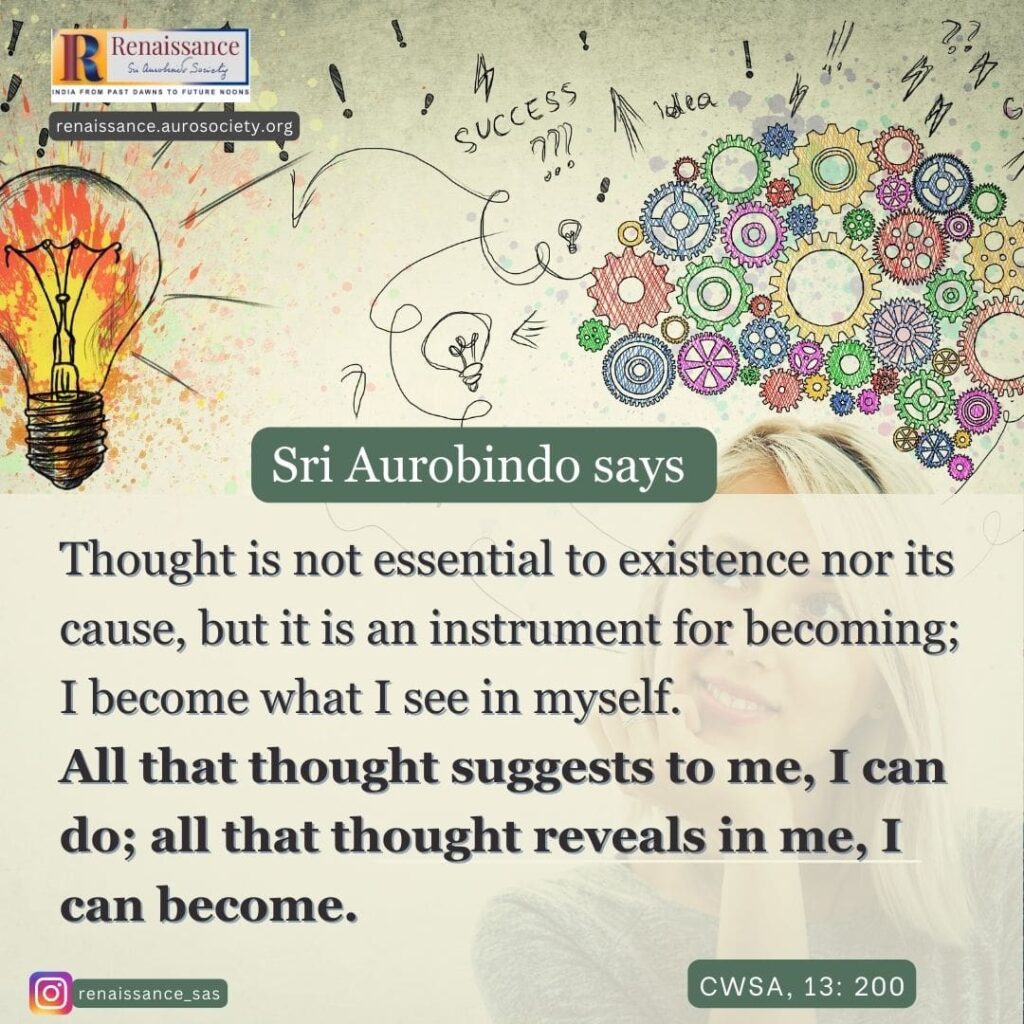
***
Also read in this issue:
Sri Aurobindo and the Modern Academic World
If the dream of a new, self-reliant, vibrant, prosperous, bold, politically strong and multicultural India is to be fulfilled, we have no choice but to heed the words of Sri Aurobindo. The masses should be awakened through education and insight, through empowerment and academic exposure, through equality, freedom of thought and expression and the culture of criticism.
India is the treasure trove of talent and excellence but political leaders are not its best keepers and guides. Their prime interest lies in dividing people and communities, create walls on the already existed fault lines of the society. Thought leaders, spiritual leaders, editors, academia, thinkers should take up the mantle.
The clear and infallible roadmap to realize this dream of India, “a thinking nation” is laid down by Sri Aurobindo in his essay titled On Original Thinking. New India should read and assimilate this essay as a thirsty desert assimilates long awaited rainfall.
Continued in PART 2
~ Design: Beloo Mehra & Ramajayam

